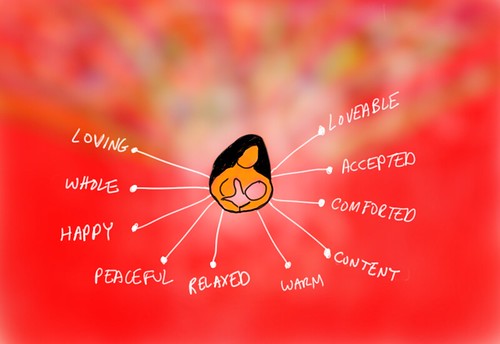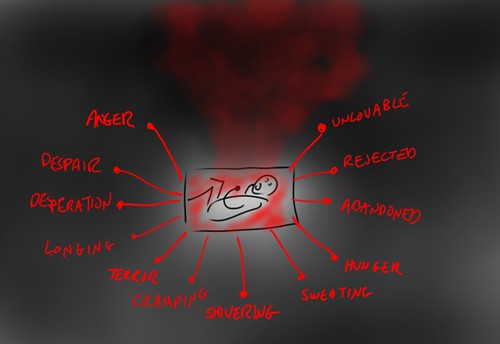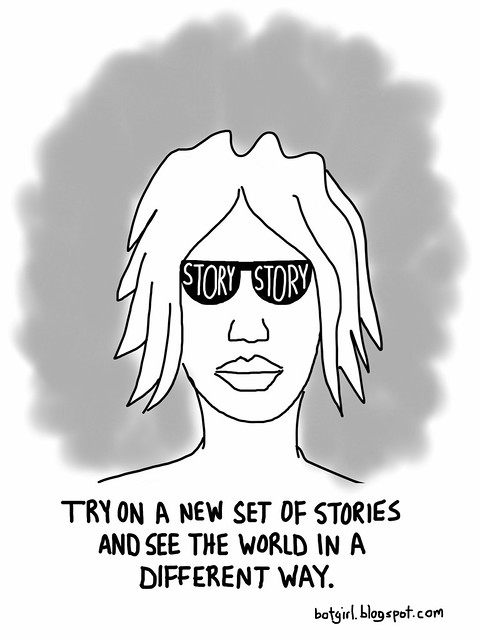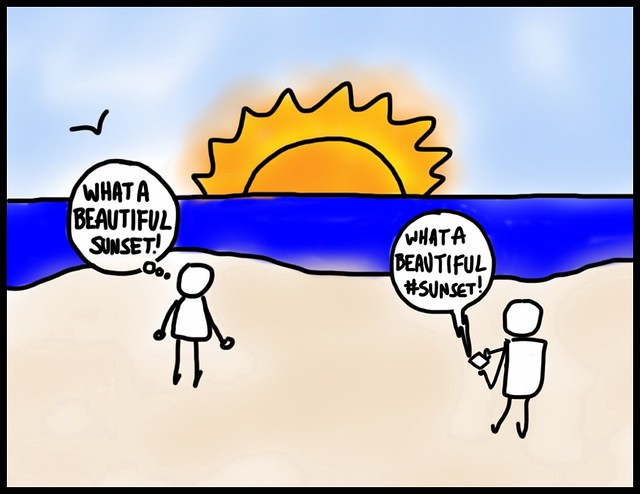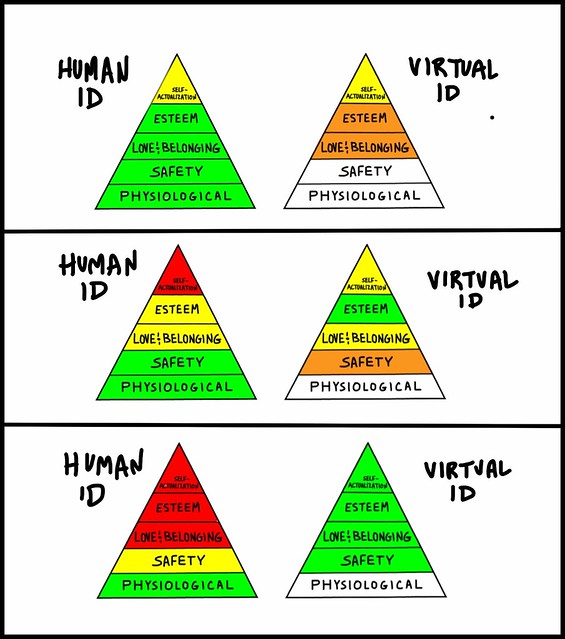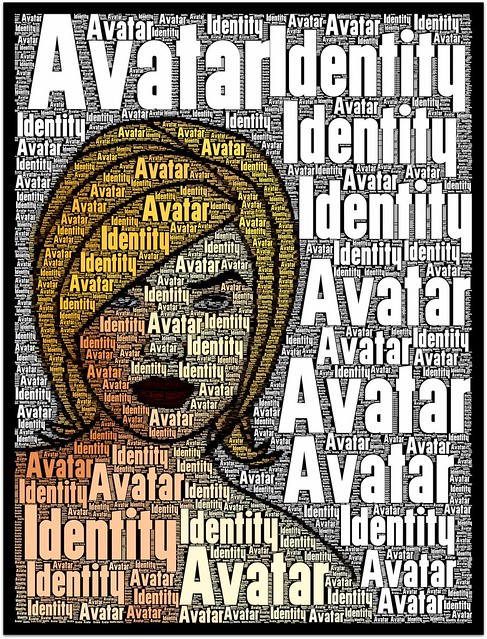Enhanced compilation of a Twitter micro-rant on the theme of "identity"
I used to think of "immersion" as the state of being psychologically embedded within a 3D virtual world such as Second Life. But upon reflection, the more compelling experience for me has been my immersion in "Botgirl Consciousness." Channeling Botgirl over the last six years has allowed me to explore and enhance a wide range of emergent personal attributes and practical abilities that I've integrated into day-to-day existence. These range from enhanced skill in writing, videography, comic creation, social networking and public speaking, to a more fluid ability to respond as the spirit moves me in any environment.
Virtual identity is so ingrained into my everyday existence that it feels natural. It's just another dimension of my personality, not qualitatively different from the contextual roles I play as parent, spouse, employee, etc.
Botgirl's Stages of Virtual Identity Awareness
- Virtual identity is a fabricated persona we make up.
- Virtual identity is an emergent psychological phenomenon arising from our subconscious.
- Virtual and physical identities are both emergent psychological phenomena, reinforced by external feedback.
The perception of any person as a static identity is largely fictional; a psychological misinterpretation of the continuity of memory. Although our newborn, grade school, high school and senior citizen selves have little in common, we think of them as being the same person because we tie everything together through a running narrative starring ourselves as the protagonist. The philosophical questions that arise from thinking about virtual identity have encouraged me to apply them to all forms of identity.
Of course, people experience virtual identity in different ways, ranging from absolutely no difference between atomic and virtual personalities to a severe split. On the extreme, I've met people who claim that their avatar personality has preferences, characteristics, beliefs and goals that not only differ from, but may be in direct opposition to what they experience when operating under their human identity. That hasn't proved to be a sustainable approach, at least for those I've known who've tried living two separate existences. Many end up suffering in two lives instead of one, eventually abandoning their active virtual life as the candle burns down from both ends.
Some use virtual identity as a way to escape the trials of their physical lives. Like any form of escapism, virtual identity is beneficial when it provides a needed respite from the challenges of life, but is harmful when it prevents us from working to improve our physical condition or fulfilling our responsibilities to our jobs, our loved ones and ourselves.
Virtual identity isn't new. Pen names predate pens. But the networked environment is a substantive change because it enables realtime and near realtime interaction. This makes some people uncomfortable when they are thrust into virtual environments with those who present themselves through a pseudonym. The mere presence of virtual identities on social networks can assault mainstream participants' mental models of personal identity. This was clearly exposed when Google Plus initially forbade virtual identities. That said, I've found that in many cases, people who were opposed to pseudonymous community members have softened their views after living with us "Nymns" for a while.
One surprising realization for me was that an identity born as a pseudonym can not only survive the exposure of the underlying human identity, but can continue to thrive. The suspension of belief required is not much more challenging than the everyday interactions we have with people we casually encounter. The challenge in all cases is to realize that everyone we meet has a much richer range of existence than what we perceive. I choose to believe that there is an unfathomable mystery at the heart of life, awareness and identity. No single persona can do justice to our infinite potential. Even God wrestles with that one.




